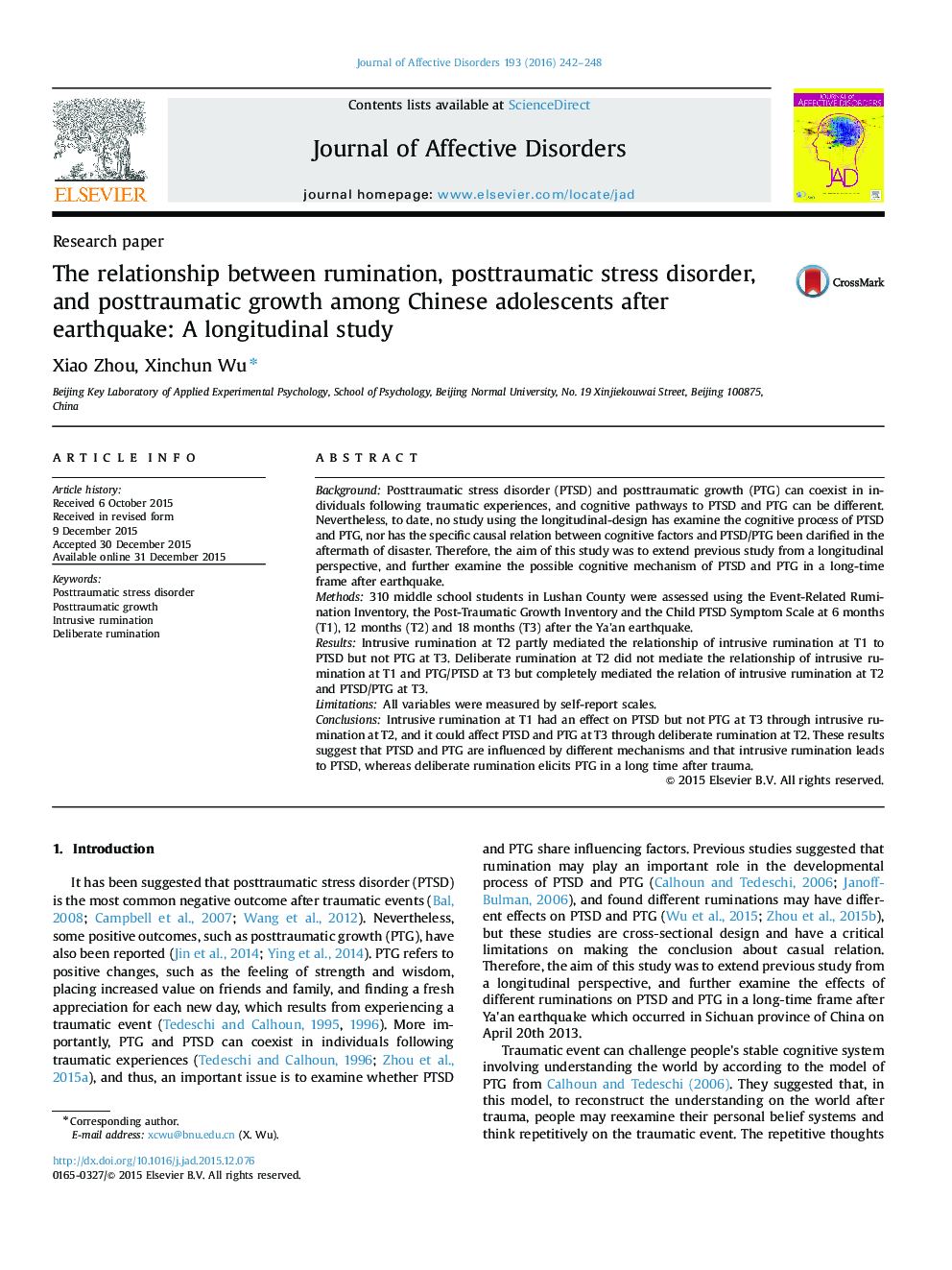| Article ID | Journal | Published Year | Pages | File Type |
|---|---|---|---|---|
| 6230476 | Journal of Affective Disorders | 2016 | 7 Pages |
â¢We examine the possible cognitive mechanism of PTSD and PTG.â¢Intrusive rumination exacerbate PTSD symptoms.â¢Intrusive rumination promote the realization of PTG by elicit deliberate rumination.â¢PTSD and PTG are influenced by different mechanisms in long time frame after trauma.
BackgroundPosttraumatic stress disorder (PTSD) and posttraumatic growth (PTG) can coexist in individuals following traumatic experiences, and cognitive pathways to PTSD and PTG can be different. Nevertheless, to date, no study using the longitudinal-design has examine the cognitive process of PTSD and PTG, nor has the specific causal relation between cognitive factors and PTSD/PTG been clarified in the aftermath of disaster. Therefore, the aim of this study was to extend previous study from a longitudinal perspective, and further examine the possible cognitive mechanism of PTSD and PTG in a long-time frame after earthquake.Methods310 middle school students in Lushan County were assessed using the Event-Related Rumination Inventory, the Post-Traumatic Growth Inventory and the Child PTSD Symptom Scale at 6 months (T1), 12 months (T2) and 18 months (T3) after the Ya'an earthquake.ResultsIntrusive rumination at T2 partly mediated the relationship of intrusive rumination at T1 to PTSD but not PTG at T3. Deliberate rumination at T2 did not mediate the relationship of intrusive rumination at T1 and PTG/PTSD at T3 but completely mediated the relation of intrusive rumination at T2 and PTSD/PTG at T3.LimitationsAll variables were measured by self-report scales.ConclusionsIntrusive rumination at T1 had an effect on PTSD but not PTG at T3 through intrusive rumination at T2, and it could affect PTSD and PTG at T3 through deliberate rumination at T2. These results suggest that PTSD and PTG are influenced by different mechanisms and that intrusive rumination leads to PTSD, whereas deliberate rumination elicits PTG in a long time after trauma.
